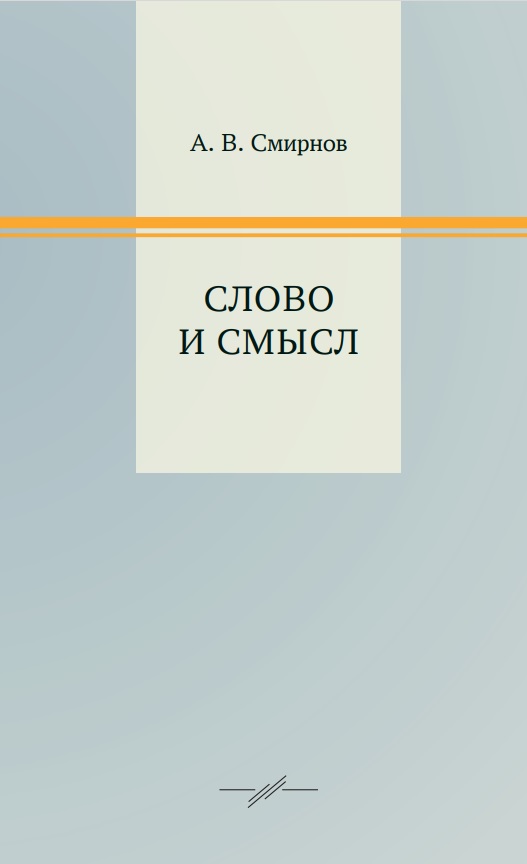“Word and Meaning”, a new work by Andrei Vadimovich Smirnov, a doctor of philosophical sciences, a member of the Russian Academy of Sciences, has been recently published.
The annotation of the book is as follows: a hypothesis about variety of basic and usually unconscious mechanisms of conscience s and, moreover, interrelation between worldview and theoretical concepts is analyzed on the basic of Arabic classical literature. Intentionality of conscience is schematized as an ability to formulate “what and what it’s like”. Variety of this ability’s implementation is provided by, first, the difference of initial intuitions of space or time, and, second, by prioritizing unity or plurality. Understanding of each separate saying or text provides implementation of this scheme in one of its variants, and a text itself never provides a priority of particular variants. Understanding of a text cannot be explained on the basis of traditional theories of meaning developed since Aristotle or Arab Muslim philosophy since its classical epoch, as these theories leave us in a vicious circle and bad infinity of explaining a meaning with the help of the other meaning. The proposed theoretical explanation helps us to overcome this vicious circle and to show how human conscience is able to provide meaning to verbal constructions.
Andrei Vadimovich Smirnov is a doctor of philosophical sciences, a member of the Russian Academy of Sciences, the senior research scholar of the Institute of Philosophy of the Russian Academy of Sciences. He is an author of the following books: “The Logics of Meaning” (2001), “All-Human vs. Universal” (2019), “Processual Logics” (2019), “Logics of meaning as philosophy of conscience: an invitation to reflection” (2021), etc.



